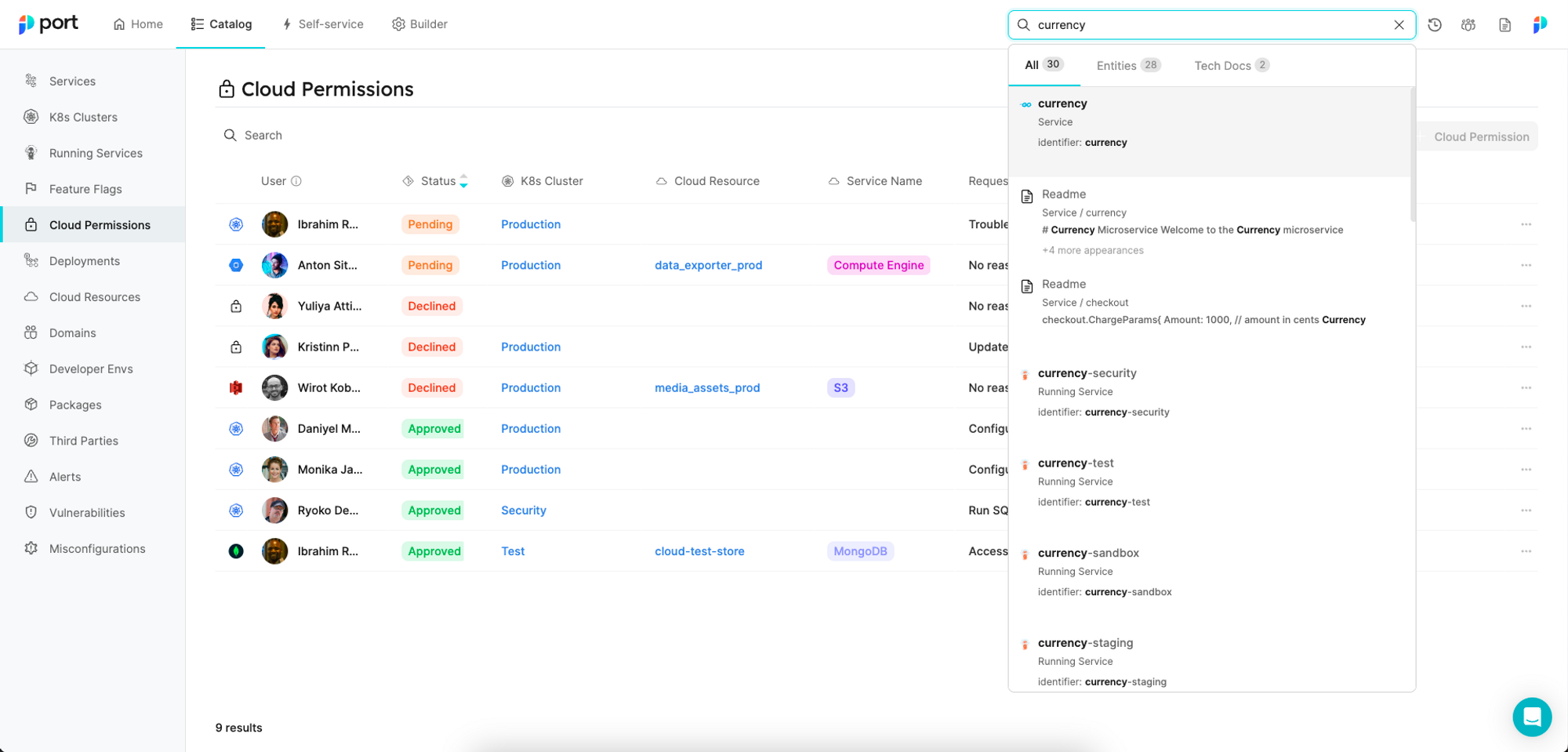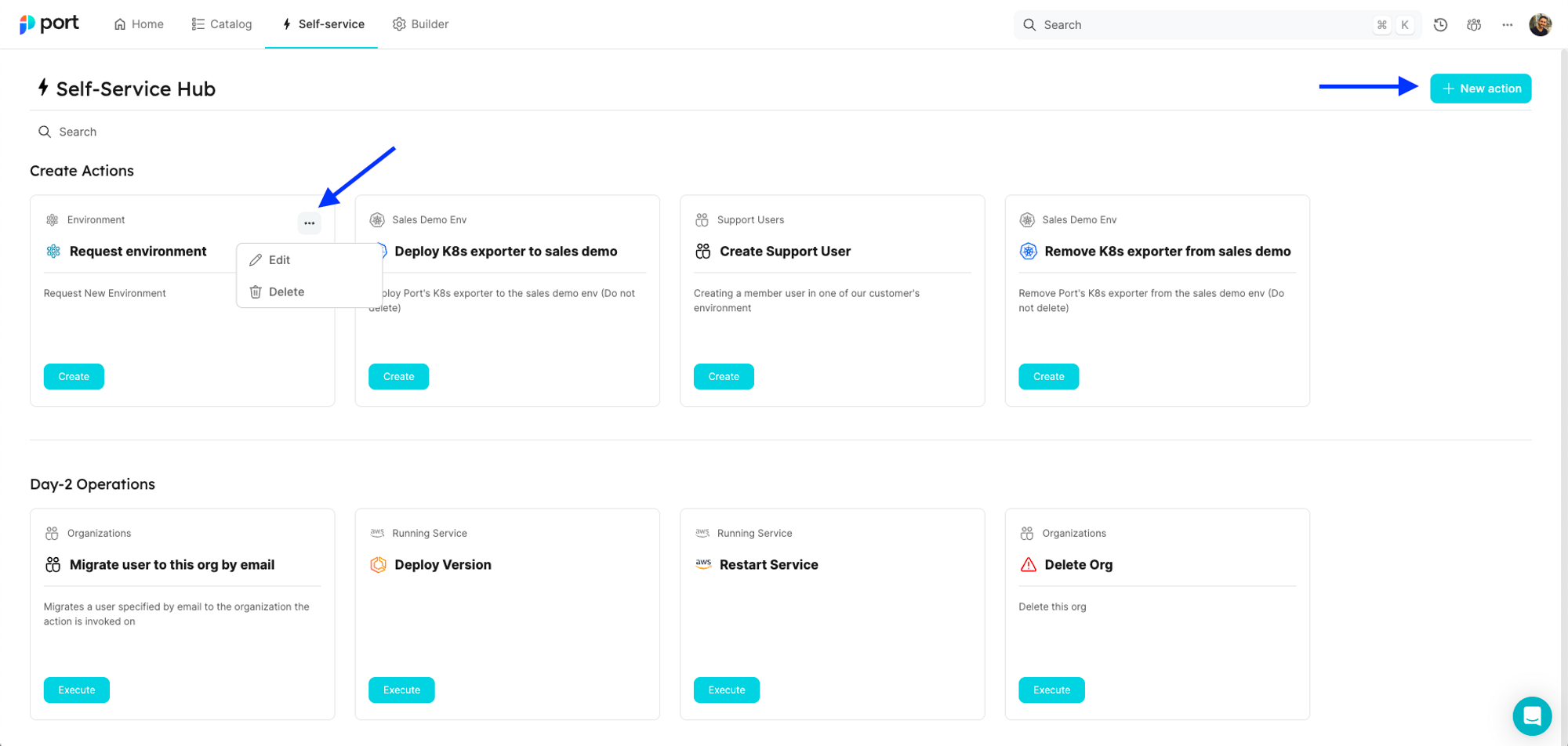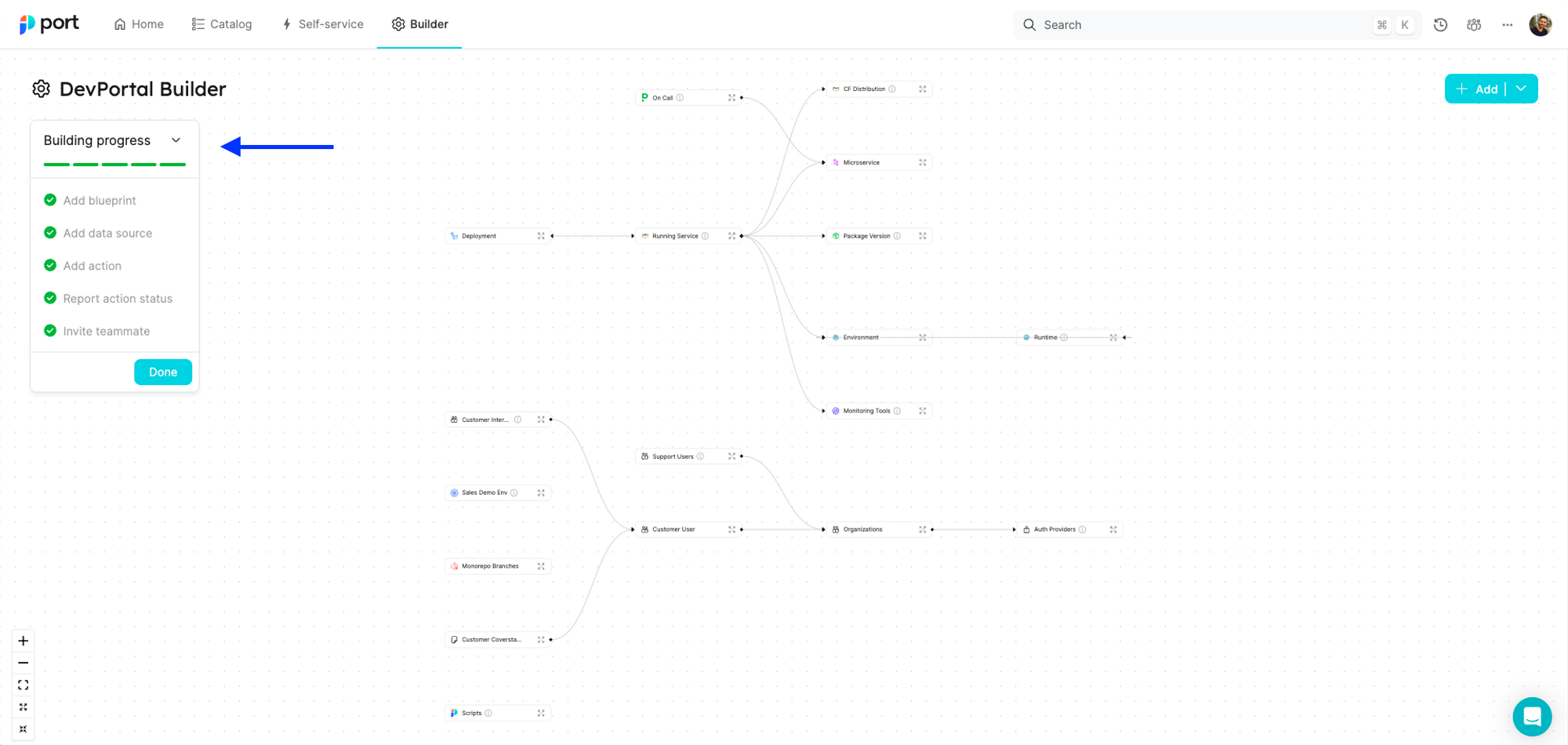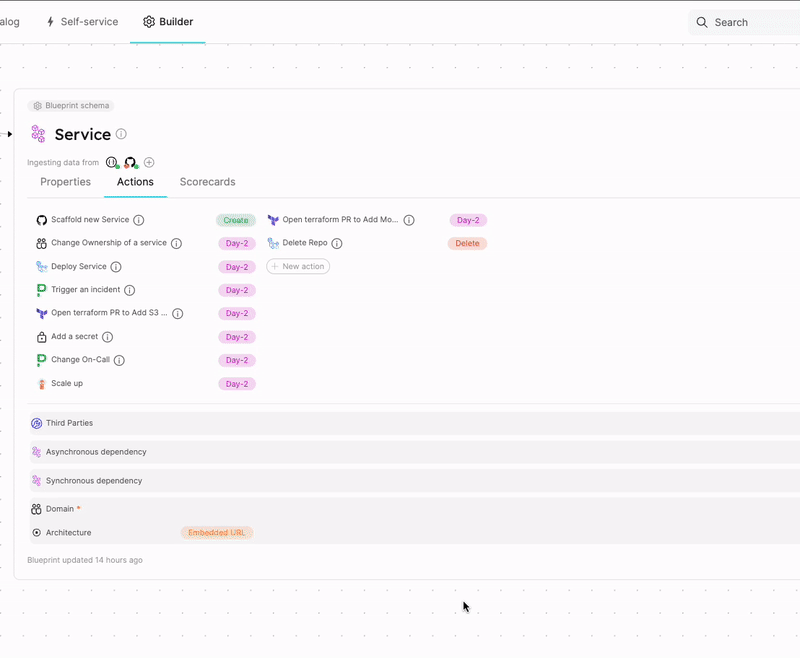It’s August already and although summer is here (and pretty hot ☀️) we’re still working furiously to deliver a better Port. Here’s what we were up to in July:
Biggest
GitLab integration improvements 🔌
Our GitLab integration is better than ever! It now supports GitOps, an easier installation, updating the configuration using Port’s UI and more.
We built it from the ground up using
Port Ocean
🌊 An open-source framework that effectively lets anyone create an exporter to bring the data they need into Port. We haven’t announced it yet, but it’s already in use. If you already configured the GitLab using our previous template, you can quickly delete the webhook mappings using the following API call and upgrade to the new integration:
curl -X 'DELETE' \ 'https://api.getport.io/v1/webhooks/gitlabIntegration' \ -H 'accept: */*' \ -H 'Authorization: Bearer <TOKEN>'
Global search 🔍
The new global search allows you to quickly search for any object in your catalog from anywhere in Port! The first version includes:
- Searching catalog entities - easily search for a microservice, environment, or any entity without navigating through the catalog ✨
- Searching Tech Docs - Port will index all your markdown documents ingested into Port for an easy search experience, turning your developer portal into an engineering documentation hub 📑
The next versions of the global search will include additional search options such as pages, actions, blueprints, and more. Stay tuned!

- Terraform SDK update
Terraform makes it easy to integrate Port with your existing IaC definitions. Every resource provisioned by Terraform can also be reported to the software catalog using the same
.tf
definition file.Port Terraform Provider v1.0 is a new framework that provides significantly Improved data access, advanced troubleshooting capabilities, fewer type assertions, and more!
Due to its scale, this new version introduces some breaking changes. Before upgrading, please refer to the full changelog and migration guide.
---------------------------------
Mediums
Define a GitOps-based catalog using Port CRDs
You can now use GitOps, Port's K8s exporter, and Port's Entity CRDs to export custom entities into Port. This will enable scenarios such as:
- Use your K8s clusters as the source-of-truth for your microservices, packages, libraries and other software catalog assets;
- Update Port in a "Push Only" method, where no elevated permissions are required for Port to interact with your infrastructure;
- Allow developers to keep the catalog up-to-date, by making updates to Kubernetes manifest files in their Git repositories;
- Create a standardized way to document software catalog assets in your organization;
- And more
Manage actions using the self-service hub
Admins can now create, edit, and delete self-service actions using the self-service hub in addition to the “Builder” page.

Checklist for the first steps with your developer portal implementation
Do you want to start using Port but don’t know where to start? A simple checklist is now displayed on the “Builder” page, containing all steps needed to get started with Port.

Dashboards - hourly, daily, weekly, and monthly averages for the number chart
When defining the "average" aggregation for the number chart, you can now calculate a daily, weekly, or monthly average in addition to the existing total average.
This will enable scenarios such as calculating DORA metrics. For example, the "Average weekly deployment frequency" in the last month.
See how to add number charts to your dashboards
---------------------------------
Smalls
Export catalog to Terraform HCL format
You can now export your entire catalog data to Terraform HCL format in addition to the already existing JSON and YAML formats. This will let you easily manage your catalog alongside your .tf definition files.

Change input order in the self-service action form
1. Admins can now control the order of self-service action inputs using Port’s interface or API, allowing you to tailor the form structure to create an optimal experience when filling out the form.
